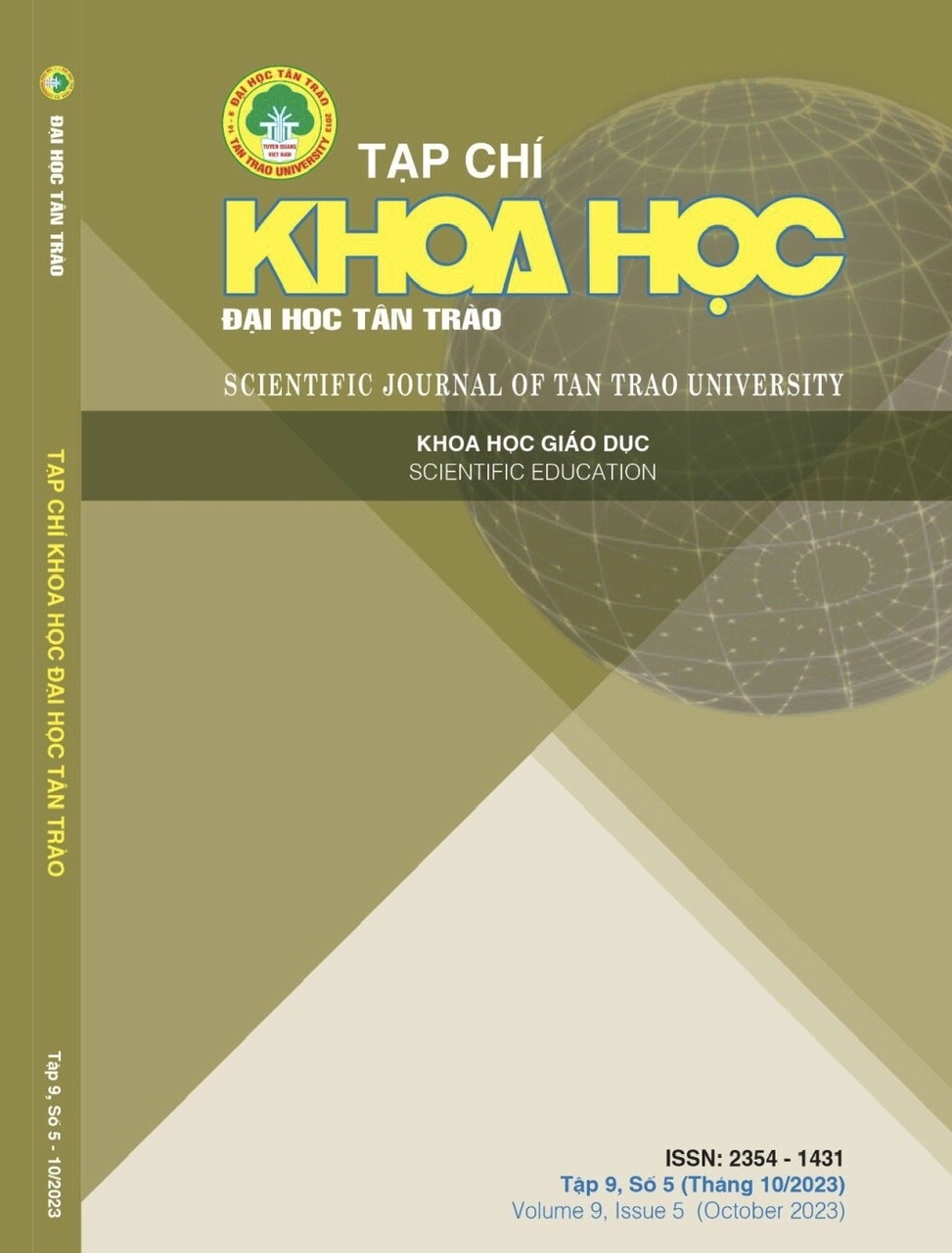SOME ISSUES WITH TRAINING STUDENTS IN PRIMARY EDUCATION MEET SOCIAL NEEDS IN THE CURRENT PERIOD
DOI:
https://doi.org/10.51453/2354-1431/2023/892Keywords:
survey, training quality, primary education, social needsAbstract
Training a generation of quality primary education students is one of the foundations for successful implementation of the 2018 General Education Program. Based on the process of survey and assessmen the quality of training for students majoring in Primary Education at Thua Thien Hue College of Education in recent years, the author proposes some solutions to state management agencies in charge of training and training institutions. create to innovate training to meet the social needs of human resources to serve the cause of industrialization and modernization of the country in the context of current integration.
Downloads
References
Bộ Giáo dục và Đào tạo:
- Quyết định số 2658/QĐ-BGDĐT ngày 23/7/2018 của Bộ Giáo dục và Đào tạo về việc ban hành kế hoạch triển khai Đề án dạy và học ngoại ngữ trong hệ thống giáo dục quốc dân giai đoạn 2017-2025;
- Thông tư 20/2018/TT-BGDĐT ngày 22/6/2018 Bộ trưởng Bộ GD&ĐT ban hành quy định chuẩn nghề nghiệp giáo viên cơ sở giáo dục phổ thông;
- Thông tư 17/2021/TT-BGDĐT ngày 22/6/2021 Bộ trưởng Bộ GD&ĐT Quy định về chuẩn chương trình đào tạo; xây dựng, thẩm định và ban hành chương trình đào tạo các trình độ của giáo dục đại học;
Quốc hội (2019). Luật Giáo dục.
Quyết định số 711/QĐ-TTg ngày 13/6/2012 của Thủ tướng Chính phủ về việc ban hành Chiến lược phát triển giáo dục 2011 – 2020.
Phạm Thị Huyền (2012). “Xây dựng chương trình đào tạo theo định hướng mới nhằm đáp ứng nhu cầu xã hội”. Đại học Kinh tế quốc dân, Hà Nội.
Phạm Thành Nghị (2000). Quản lý chất lượng giáo dục đại học. NXB Đại học Quốc gia, Hà Nội.
Trần Quang Bình, Trần Minh Hùng (2013). Khảo sát, đánh giá chất lượng sinh viên và giải pháp đào tạo đáp ứng nhu cầu xã hội của Trường Cao đẳng Sư phạm Thừa Thiên Huế. Đề tài cấp trường, Huế.
Downloads
Published
How to Cite
Issue
Section
License

This work is licensed under a Creative Commons Attribution-ShareAlike 4.0 International License.
All articles published in SJTTU are licensed under a Creative Commons Attribution-ShareAlike 4.0 International (CC BY-SA) license. This means anyone is free to copy, transform, or redistribute articles for any lawful purpose in any medium, provided they give appropriate attribution to the original author(s) and SJTTU, link to the license, indicate if changes were made, and redistribute any derivative work under the same license.
Copyright on articles is retained by the respective author(s), without restrictions. A non-exclusive license is granted to SJTTU to publish the article and identify itself as its original publisher, along with the commercial right to include the article in a hardcopy issue for sale to libraries and individuals.
Although the conditions of the CC BY-SA license don't apply to authors (as the copyright holder of your article, you have no restrictions on your rights), by submitting to SJTTU, authors recognize the rights of readers, and must grant any third party the right to use their article to the extent provided by the license.


